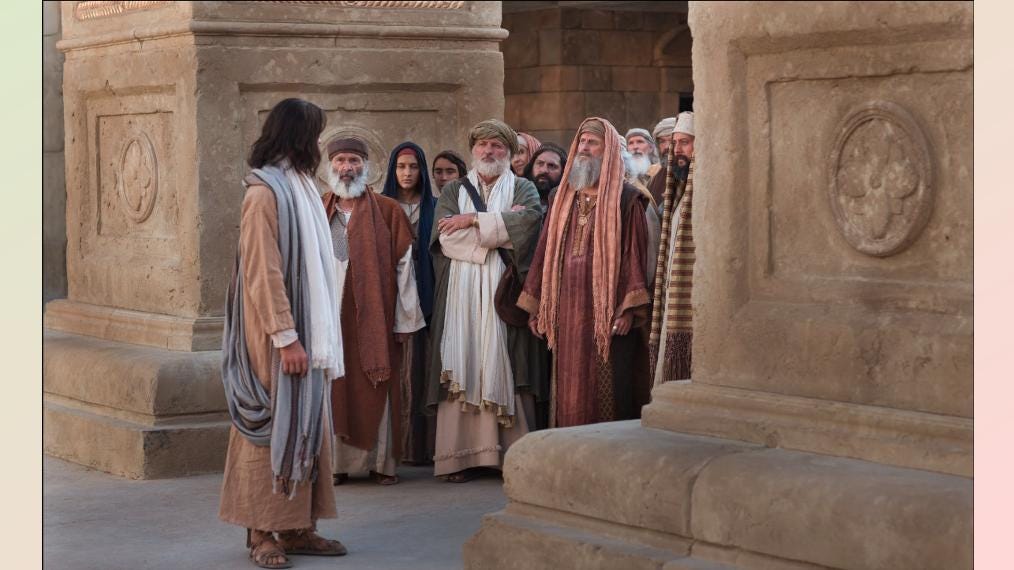Jer. 20:10-13; Psalm 18:2-3a, 3bc-4, 5-6, 7; John 10:31-42
Psalm 18 is introduced with the following superscription: “A Psalm of David, the servant of the LORD, who addressed the words of this song to the LORD on the day when the LORD delivered him from the hand of all his enemies, and from the hand of Saul” (Ps 18:1). This psalm is placed between the first reading and the Gospel. In the first reading, the friends of Jeremiah await his downfall, and in the Gospel, the Judeans are about to stone Jesus. But Jeremiah is confident that the Lord will not allow him to be overcome by his persecutors, and Jesus is not stoned to death.
The first reading ends with Jeremiah's praise of God because the Lord "has rescued the needy from the hands of evildoers" (Jer. 20:13). A similar message is proclaimed by the psalmist who testifies that when he cried to the Lord in his distress, the Lord heard his voice (Ps 18:7). And Jesus disarms his prosecutors with a question, "I have shown you many good works from my Father. For which of these are you trying to stone me?" (John 10:32) and walks safely across the Jordan. All seems to end well but then, according to Jewish tradition, Jeremiah was stoned to death, and the Judeans would succeed in arresting Jesus, condemning Him of blasphemy, and turning Him over to the Romans to be crucified.
The Lord delivered David from all his enemies with the exception of one enemy - death. But David's triumph over his worldly enemies, Jeremiah's temporary escape from his persecutors, and Jesus's safe crossing across the Jordan prepare us for the greatest message the world has ever heard - the defeat of death. Saint Paul calls it "the last enemy" (1 Cor 15:26) and declares that "death is swallowed up in victory" (1 Cor 15:54).
In Christian reading, Psalm 18 is applied to Jesus Christ, who fought against the forces of evil and death. On Good Friday, “the breakers of death encompassed” Jesus, “the cords of the netherworld encircled” him, and “the snares of death overtook” our Lord (see Ps 18:5-6). From the cross, Jesus cried out to God, “My God, my God, why have you forsaken me?” (Ps 22:2; Matt 27:46) and “Father, into your hands I commit my spirit!” (Ps 31:6; Luke 23:46). The Father heard the cry of His Beloved Son and saved Him from death (see Heb. 5:7; Ps 18:7). On Easter morning, Jesus Christ came out of the tomb victorious, and death has no more power over Him (see Rom 6:9).
It was across the Jordan that John the Baptist gave testimony about Jesus: “This is the Lamb of God who takes away the sin of the world.“ This taking away of the sin of the world would happen through Jesus's sacrificial death on the cross and his resurrection. In this way, the Lord has delivered us from the last enemy of humanity - eternal death - and its sting - sin. This victory over death, the cornerstone of Christian faith, offers hope and assurance to all of us that through Him, we can prevail over life's trials and reach the shores of everlasting life.
The unifying message revolves around the theme of resilience and trust in God amidst challenges. Whether it's Jeremiah standing firm in his prophetic calling, the psalmist finding solace in God's protective presence, or Jesus facing hostility, the passages collectively convey the idea that those who remain steadfast in their faith will ultimately triumph. Despite adversity and opposition, the assurance lies in God's strength, refuge, and the ultimate victory of divine purpose. This compilation encourages believers to persevere, relying on the unwavering support and protection offered by God in the face of life's trials.




